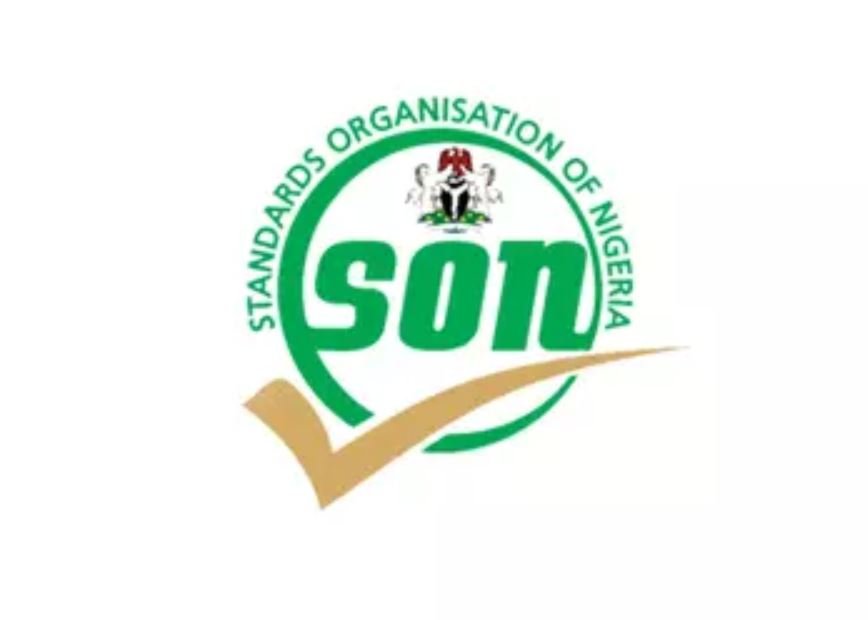
The Meaning Of SON in Nigeria And Their Functions
The Standards Organisation of Nigeria (SON) is the main body that sets and regulates standards for products and services in Nigeria.
It was established by an act in 1971 and started operating in 1970. SON aims to guarantee that goods produced and sold in Nigeria meet specific quality standards. This organization protects consumers by ensuring that products are safe and reliable.
SON also collaborates with international standard organizations to improve the quality of Nigerian products globally. Its headquarters is located in Abuja, Nigeria.
READ ALSO: Full Meaning Of NSCDC And Functions
Key Functions Of SON
Here are five key functions of SON, written in simple words:
1. Setting Standards
SON is in charge of creating and approving standards for different products, materials, and processes. These standards are like rules that manufacturers and service providers must follow to ensure the quality and safety of their products.
By doing this, SON confirms that everything produced or sold in Nigeria meets certain quality guidelines. This also helps create consistency in the quality of products across the country.
2. Product Certification
Another major task of SON is certifying products. They check whether products meet the standards before they are sold in the market.
SON makes sure that consumers get safe and good-quality items. It also encourages companies to follow the rules and produce items that meet the necessary standards.
READ ALSO: Full Meaning Of ICPC And Their Functions
3. Quality Control And Inspection
SON conducts regular checks and inspections to make sure that products follow the required standards. This includes that the weights and measures used in trade are correct so that there’s no cheating.
Through quality control, SON ensures that people don’t end up with low-quality or fake products, which protects consumers and builds trust in the market.
4. Metrology Services
Metrology is the science of measuring things. SON provides accurate reference standards for measuring tools and equipment.
This is important for industries where precise measurements are needed, like in manufacturing or healthcare. SON ensures that all measurements are correct, which helps industries produce accurate and reliable products.
5. Consumer Protection And Advocacy
SON also protects consumers. They investigate complaints about poor-quality products and take action against manufacturers who don’t follow the standards.
This helps keep harmful or fake products off the market and ensures that people get their money’s worth when they buy something.
READ ALSO: When Was The Nigerian Army Established
Standards Development And Certification
The Standards Organisation of Nigeria (SON) is responsible for making sure that products in the Nigerian market meet quality and safety standards. SON plays an important role in developing these standards and certifying products.
How Standards Are Developed?
SON follows different important steps in creating standards:
- Finding the need for a standard: SON looks at feedback from people and companies, market trends, and government regulations to identify where new standards are needed.
- Creating the standard: SON forms committees made up of experts from different industries to create draft standards. These experts use international best practices and adjust them to fit Nigeria’s needs.
- Public review: The draft standard is shared with the public to get feedback from manufacturers, consumers, and regulatory bodies. This step makes sure the standards are fair and useful.
- Approval: After public review, the Standards Council of Nigeria checks the draft standards. Once they are satisfied, the Minister of Industry, Trade, and Investment gives the final approval.
READ ALSO: List Of Nigeria Inspector Generals Of Police (1964-Present)
Certification Schemes For Products
Once a standard is approved, SON makes sure that products meet these standards through two main certification programs:
1. SON Conformity Assessment Programme (SONCAP):
This program is for imported products. Under SONCAP, products are checked for conformity, which includes inspecting the product physically, taking samples for testing, and checking the manufacturing process.
Importers must get two certificates: a Product Certificate (PC) and a SONCAP Certificate (SC). Without these certificates, imported goods cannot pass through Nigerian customs.
2. Nigerian Industrial Standards (NIS) Certification Scheme:
This applies to products made in Nigeria. SON visits factories to inspect the production process, tests products in labs, and audits quality systems.
If the products meet all requirements, the manufacturer receives the NIS Certification Mark, which shows the product’s high quality.
Impact Of SON On The Nigerian Economy
Here are some of the ways SON helps improve the country’s economy:
1. Quality Control And Consumer Safety
SON ensures that the products made and sold in Nigeria meet quality standards. By protecting consumers, SON builds trust in locally made goods.
When people feel confident that the products they buy are safe and well-made, they are more likely to spend money, which helps grow the economy.
2. Helping Small Businesses (MSMEs)
Micro, Small, and Medium Enterprises (MSMEs) are very important for Nigeria’s economy because they provide jobs and contribute to the GDP. SON helps these small businesses by guiding them on how to meet quality standards.
They give MSMEs the chance to sell their products both locally and internationally, which can increase their sales and make Nigerian goods more competitive around the world.
READ ALSO: Complete List Of Army Barracks In Nigeria
3. Boosting Exports
SON also helps Nigerian businesses export their goods to other countries. Through programs like the SON Conformity Assessment Programme (SONCAP), SON makes sure that Nigerian products meet international standards.
This makes it easier for Nigerian manufacturers to sell their products abroad, bringing in foreign money and reducing Nigeria’s dependence on oil exports.
4. Growing The Economy Through Standardization
Standardization is about making sure that things are done in the best possible way. SON encourages manufacturers to follow best practices and maintain high-quality production.
When businesses become more productive, the economy benefits because more goods are made, and more people have jobs.
5. Working With Partners
SON works closely with other government agencies, industry groups, and international organizations to ensure that Nigerian standards are in line with global best practices. This keeps Nigerian products competitive in the global market while also encouraging innovation in local industries.


